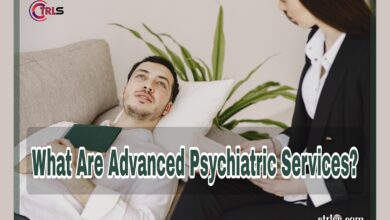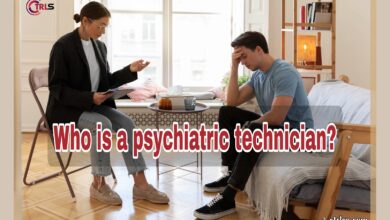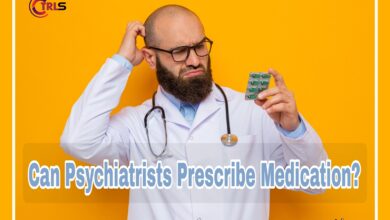What Is obsessive-compulsive-disorder (OCD) ? and What Is Symptoms, Causes, and Treatment?
Hey there, folks! Welcome to our comprehensive guide on obsessive-compulsive disorder (OCD). In this blog post, we’ll dive deep into the world of OCD “obsessive compulsive disorder symptoms“, exploring its definition, symptoms, and available treatment options. So, buckle up, grab a cup of tea, and let’s embark on this enlightening journey together! So obsessive compulsive disorder symptoms ,obsessive compulsive personality disorder
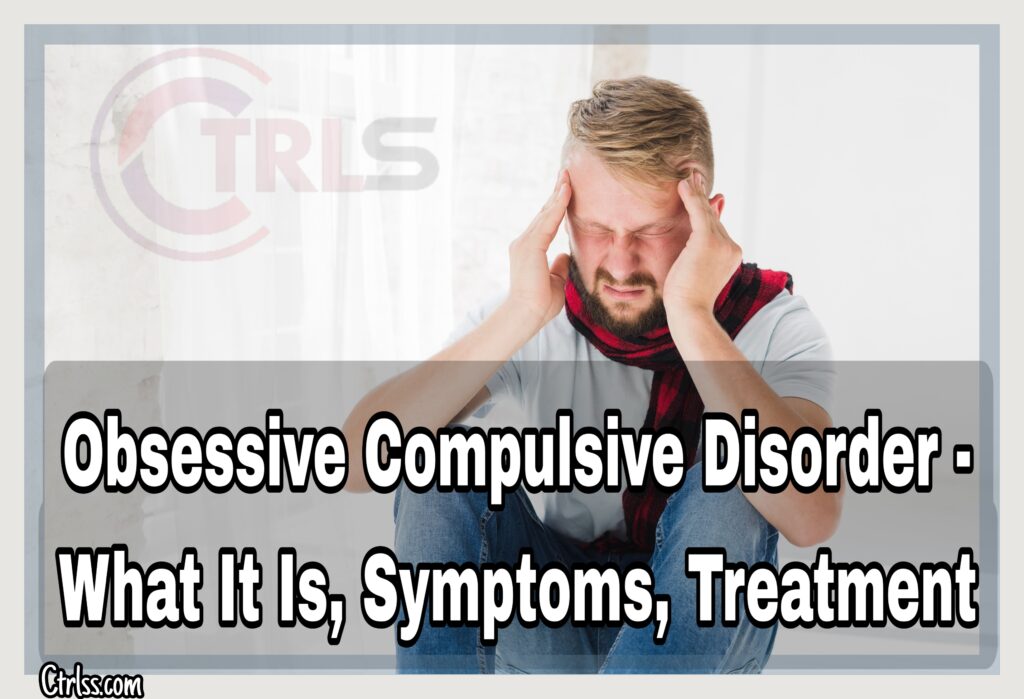
OCD Unveiled: Peering into the Depths
Obsessive-compulsive disorder, a mental health condition that goes beyond ordinary worries and habits. It’s like having a mind that dances to its own beat, often leading to distressing thoughts (obsessions) and repetitive behaviors (compulsions). Let’s shed some light on this intricate disorder.
The Symptoms: Navigating the Maze
OCD is like a maze of thoughts and actions that can consume your daily life. It manifests through various symptoms, and it’s essential to recognize them to seek proper help. Let’s explore some common signs and symptoms associated with OCD “obsessive compulsive disorder symptoms“:
- Obsessions: These intrusive thoughts or mental images can be distressing and difficult to control. They often revolve around themes like cleanliness, symmetry, or fear of harm. It’s like having a broken record playing in your mind that you can’t turn off.
- Compulsions: To alleviate the anxiety caused by obsessions, individuals with OCD often engage in repetitive behaviors or rituals. These rituals may include excessive handwashing, checking locks repeatedly, or arranging objects symmetrically. It’s like being trapped in a loop of actions that temporarily ease the mind.
- Fear of Consequences: People with OCD often have an intense fear that something terrible will happen if they don’t perform their rituals or give in to their obsessions. It’s like being held hostage by your own thoughts, fearing the worst outcomes.
- Time and Energy Drain: The obsessive thoughts and compulsive behaviors can consume a significant amount of time and energy, interfering with daily activities and responsibilities. It’s like having an unwanted guest that demands your constant attention.
obsessive compulsive personality disorder
Understanding the Impact: The Weight of OCD
OCD doesn’t discriminate; it can affect individuals from all walks of life. It’s essential to understand that OCD is not a personality quirk or a sign of weakness. It’s a genuine mental health condition that can have a profound impact on one’s well-being. Let’s explore some of the effects of OCD:
- Emotional Distress: Living with OCD can be emotionally draining. The constant battle with intrusive thoughts and the need to perform rituals can lead to anxiety, depression, and low self-esteem. It’s like carrying a heavy emotional burden that weighs you down.
- Social Isolation: The stigma surrounding mental health conditions like OCD can make individuals reluctant to seek help or share their struggles with others. This can cause emotions of isolation and loneliness.. It’s like being trapped on an island, longing for connection but afraid to reach out.
- Interference with Relationships: OCD can strain relationships with family, friends, and romantic partners. The rituals and obsessions might be hard for others to understand, leading to frustration, misunderstandings, and strained communication. It’s like having a wall between you and the people you care about.
- Impact on Work and Education: The time-consuming rituals and intrusive thoughts can interfere with productivity at work or academic performance. And It’s like trying to focus on a task while a whirlwind of thoughts swirls in your mind.
Shedding Light on Treatment: Finding Relief from OCD
The good news is that there is hope for individuals living with OCD. Treatment options are available to help manage the symptoms and improve quality of life. Let’s explore some common strategies for treating OCD:
- Cognitive-Behavioral Therapy (CBT): This type of therapy is often considered the gold standard for treating OCD. It focuses on identifying and challenging negative thought patterns and gradually exposing individuals to their fears or triggers. It’s like rewiring the brain to develop healthier perspectives and coping mechanisms.
- Medication: In some cases, medication can be prescribed to help manage OCD symptoms “obsessive compulsive disorder symptoms“. Selective serotonin reuptake inhibitors (SSRIs) are typically used to modify serotonin tiers withinside the brain, lowering the depth of obsessions and compulsions.
- Support Groups: Joining a support group or seeking peer support can be immensely beneficial for individuals with OCD. Connecting with others who understand your struggles can provide a sense of belonging, empathy, and encouragement. It’s like finding a community of warriors who fight the same battles.
- Lifestyle Changes: Incorporating healthy habits into your daily routine can complement other treatment approaches. So Regular exercise, stress reduction techniques like mindfulness or yoga, and maintaining a balanced lifestyle can contribute to overall well-being and symptom management.
Embracing a Life Beyond OCD : Nurturing Mental Health
Living with OCD can be challenging, but it doesn’t define who you are. Here aresome additional tips for nurturing your mental health and finding a sense of balance:
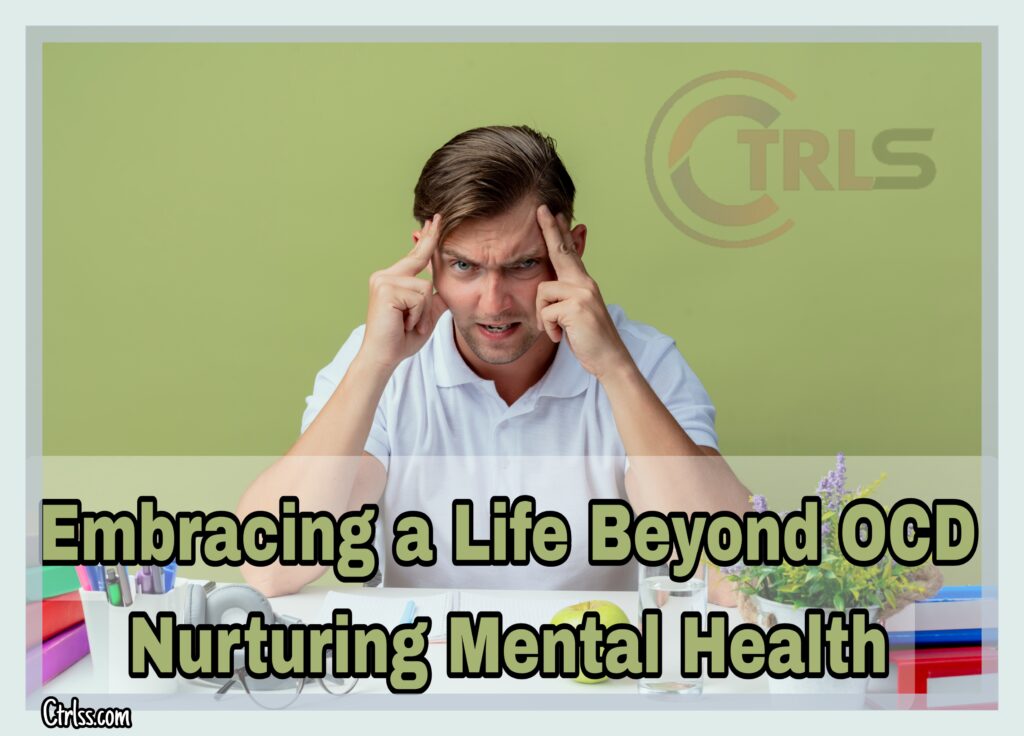
- Self-Care: Prioritize self-care sports that convey you pleasure and relaxation.Engage in hobbies, spend time in nature, practice gratitude, and ensure you’re taking care of your physical health too. It’s like giving yourself a well-deserved break from the chaos.
- Education and Awareness: Educate yourself about OCD to better understand the condition and debunk any misconceptions. Share your knowledge with others to raise awareness and promote empathy and understanding. It’s like shining a light on the shadows of ignorance.
- Seeking Professional Help: If you suspect you or someone you know may have OCD, don’t hesitate to reach out to a mental health professional. They can provide a proper diagnosis, personalized treatment plan, and ongoing support. It’s like having a guiding compass to navigate the stormy seas.
- Patience and Perseverance: Overcoming OCD takes time and effort. Be patient with yourself and celebrate even the smallest victories along the way. Remember, progress is a journey, not a destination. It’s like climbing a mountain, one step at a time, knowing that the view from the top will be worth it.
Unmasking the Complexity of OCD
And there you have it, folks! We’ve delved into the depths of OCD to unravel its intricacies. From understanding its symptoms to exploring available treatment options, we hope this guide has shed light on the challenges and possibilities for individuals living with OCD. Remember, you are not alone, and there is support and help available.
If you or someone you know is struggling with OCD, don’t hesitate to seek professional assistance. Together, we can break the chains of OCD and embrace a life of freedom, joy, and well-being. Let’s spread awareness, foster understanding, and create a world where mental health is nurtured and celebrated.
obsessive compulsive personality disorder
Disclaimer: This weblog put up is for informational functions most effective and ought to now no longer replacement expert scientific advice. If you have concerns about your mental health, please consult a qualified healthcare professional.
Now, go forth and share this knowledge with the world! Let’s create a ripple of understanding and support for those affected by OCD.
Thank you for reading!

